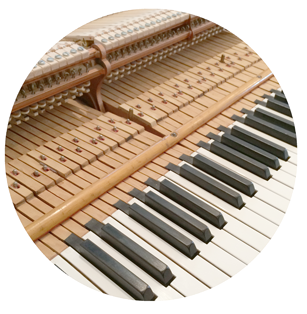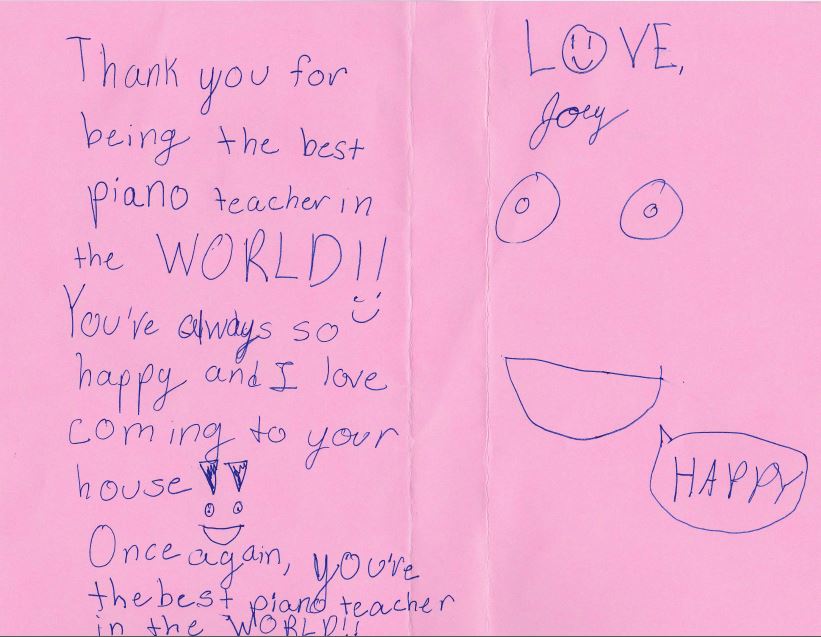TEACHING
Materials for Women Composers Class at Washington Conservatory
I’m eager to add to this list. Email me your suggestions.
books and articles:
Norton/Grove Dictionary of Women Composers, ed. Julie Anne Sadie and Rhian Samuel (1995) – lists 875 women composers
Rethinking Difference in Music Scholarship, ed. Olivia Bloechl, Melanie Lowe, and Jeffrey Kallberg (Cambridge University Press, 2015 and 2019) – which is kind of a response and update to:
Musicology and Difference: Gender and Sexuality in Music Scholarship, ed. Ruth Solie (University of California Press, 1993)
A Room of One’s Own, Virginia Woolf, 1929 It’s still a great book.
Where Are All the Black Female Composers? Nathan Holder, 2020
Feminine Endings: Music, Gender, & Sexuality, Susan McClary, 1991
Gender and the Musical Canon, Marcia J. Citron, 1993
A Feminist Ethnomusicology – Writings on Music and Gender, Ellen Koskoff, 2014
Sounds and Sweet Airs – The Forgotten Women of Classical Music, Anna Beer, 2016
Journal: Women & Music, A Journal of Gender and Culture
Stanford Encyclopedia of Philosophy, online article on “feminist philosophy”
Alex Ross in The New Yorker has numerous articles on women composers including
Opera Against the Patriarchy and Even the Score
websites:
Boulanger Initiative – advocates for music composed by womxn
Institute for Composer Diversity
Kassia Database (art songs by women composers)
NewMusicBox and their Counterstream radio have many articles and recordings
Radio Mona Lisa on Radio Zender (Dutch radio)
She is Song blog by Noelle McMurtry
Women Composers of Classical Music – Facebook page, people often post recordings
Music Studio
Jessica Krash runs a private studio for lessons in piano, chamber music, theory, and composition for students of all ages and levels. Jessica teaches the rigorous traditions of piano playing and composition, but also helps students figure out when to break with tradition.
“I see teaching piano as an artistic conversation. Through studying individual pieces of music and technical skills, we explore together the nature of musical understandings. We use music to understand the outside world: the essences of structures and stories, feelings, textures, qualities of motion, worldviews and values. In turn, we bring our knowledge and experiences of the world to help us better understand music and make better music. We notice in music parallels to the way conversations work, how stories unfold, how feelings change, how ideas move, and how people and objects move. Moving through music history, we experience what people cared about at times and places far from our own.
Download pdf of Jessica’s easy-to-read Fur Elise, second section.
Chamber Music Seminar
A mixture of discussion, concerts, and master class with Jessica Krash, the seminar has been meeting in Washington, DC for over 30 years, and always welcomes new players and listeners.
2023-24 SEASON:
November 5 – WELCOME BACK – Bring your favorite pieces, or pieces you are puzzling about.
December 10 – MID 18th CENTURY – those wonderful decades between Baroque and Classical
February 4 – MUSIC BY WOMEN COMPOSERS
April 7 – IT DON’T MEAN A THING IF IT AIN’T GOT THAT SWING – Bring pieces which have a rhythm or meter that you find especially meaningful, interesting, or fun.
The seminar emphasizes the richness of playing music in the context of a conversation. Much of the historic chamber music came from communities that valued conversation as an art form. Chamber music itself often has phrasing that works like people talking to each other. Classes are centered on a dialogue of vibrant, intelligent, musical amateurs who bring their knowledge of other fields to a discussion of music. In recent years, they have been joined by composers and professional musicians. Discussions include topics from music history and literature, the joys and challenges of ensemble playing, and performance strategies and anxieties. Most of the participants bring an instrument, but some come just to participate in the dialogue. All levels of players are welcome, including people playing chamber music for the first time. The seminar recognizes that people who are busy in other professions go in and out of shape with their instrument-playing, so the emphasis is on listening to what musicians are trying, hoping, to convey. Some seminar players trained to be professional musicians but went into other professions – the seminar gives them a chance to continue a lifelong involvement with music at a high level. To find out about participating, email jkrash2@gmail.com


